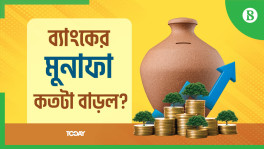Social entrepreneurship in Bangladesh fulfilling the SDGs
Covid-19 has brought new challenges for those social enterprises. However, the existing organisations advanced their services and a number of new organisations initiated their services amidst the pandemic, dealing with the global crisis.

Social entrepreneurship can be defined as projects working towards alleviating one or more social issues through creative and innovative ideas. Mostly social entrepreneurship functions with a vision and mission to have a changing impact on society, in a very 'bottom-up' or commonly referred to as 'grassroots approach'.
The main difference between social entrepreneurship and NGOs lies within their income generation: the former generate their own profit to run, the latter depends on public funding only. However, the current mixed status of social enterprises is hard to differentiate in such terms only.
Bangladesh has witnessed gradual economic progress throughout the years. But social constraints in terms of tackling poverty, unemployment, women empowerment, and climate change remain as challenging concepts to cater. Government initiatives, international aid, and NGOs' campaigns are not sufficient to handle such complex and interconnected problems yet.
However, it is worth mentioning that there has been substantial progress by those organisations in terms of tackling issues such as poverty, empowerment, etc. Yet a neighbourhood innovative approach does not seem to be far behind within the race.
Bangladesh has taken up 39+ priority indicators for the Sustainable Development Goals (SDGs), keeping in mind the national perspective in tackling the 17 goals. The details of the priority indicators can be found on the website of the Bangladesh Government SDG Tracker. Social entrepreneurship plays an important role in terms of fulfilling the goals. According to a research on social enterprises conducted by the British Council, most of the entrepreneurs working with socially and economically disadvantaged communities are below 35 and women lead 20% of such enterprises.
The impact of BRAC and Grameen Bank proved the significance of social organisations in Bangladesh. Some noteworthy youth-led social enterprises include Bidyanondo Foundation, Amal Foundation, Jagoo, Astha, Manusher Jonno Foundation, Maya, Mojar school, Moshal Mental Health, iFarmer, etc.
These organisations are working towards fulfilling SDGs in areas such as poverty reduction, women empowerment, quality education, health, nutrition, agriculture, economic sustainability, emergency response, human rights, mental health, etc. But as they are based on external funding as a grant, investment, donation, or in partnership with large scale social enterprise, for example, BRAC, they often face constraints due to limited knowledge, lack of technical support, and limited cash flow.
Amidst difficulties, numerous innovative social ideas are having a positive impact on people's life. Bidyanondo Foundation has undertaken various projects including mother and child hospital, Covid-19 response, 'one taka meal' etc. It'one taka meal' project distributes around 2.4 million meals a year to fight against hunger crisis and nutrition gap. Mojar school is another such project where in addition to providing nutrition supplements, they work for the education of underprivileged children as well as providing safe shelter facilities.
Gender inequality is another such a noteworthy goal. This is taken by the assorted organisations in terms of both providing physical as well as mental health-related facilities. For example, Maya provided distant health services, Amal Foundation worked towards empowering women through skill-based training, and so on.
Although Bangladesh is an agricultural-based country, the farmers and retailers connected with this sector often lack improved technical skills and knowledge to keep up the growth during this fast-paced world. In this respect, iFarmer is one such enterprise which is working towards the betterment of the agriculture sector through innovative strategies and legal assisting procedures.
Nevertheless, environment and climate change seemed to be a less preferential sector among social entrepreneurs, and a spotlight towards the arena will be very appreciable.
Covid-19 has brought new challenges for those social enterprises. Furthermore, it has become a prerequisite to cope with increasing poverty and unemployment. Since it is an international crisis, funding became an option of uncertainty too. However, the existing organisations advanced their services and a number of new organisations initiated their services amidst the pandemic, dealing with the global crisis.
The power of small-scale social entrepreneurship lies in their ability to succeed in the target group: the vulnerable and marginalized. They directly provide solutions based on the requirement of the people in need. But this might be a bit challenging for large scale hierarchical organisations. However, the combined achievement of such social enterprises produces sustainable progress in terms of the economic, social, and human development of the country.
Rufaida Shafiq Aaneela is a student of Department of Development Studies at the University of Dhaka.
Disclaimer: The views and opinions expressed in this article are those of the authors and do not necessarily reflect the opinions and views of The Business Standard.


 Keep updated, follow The Business Standard's Google news channel
Keep updated, follow The Business Standard's Google news channel
















